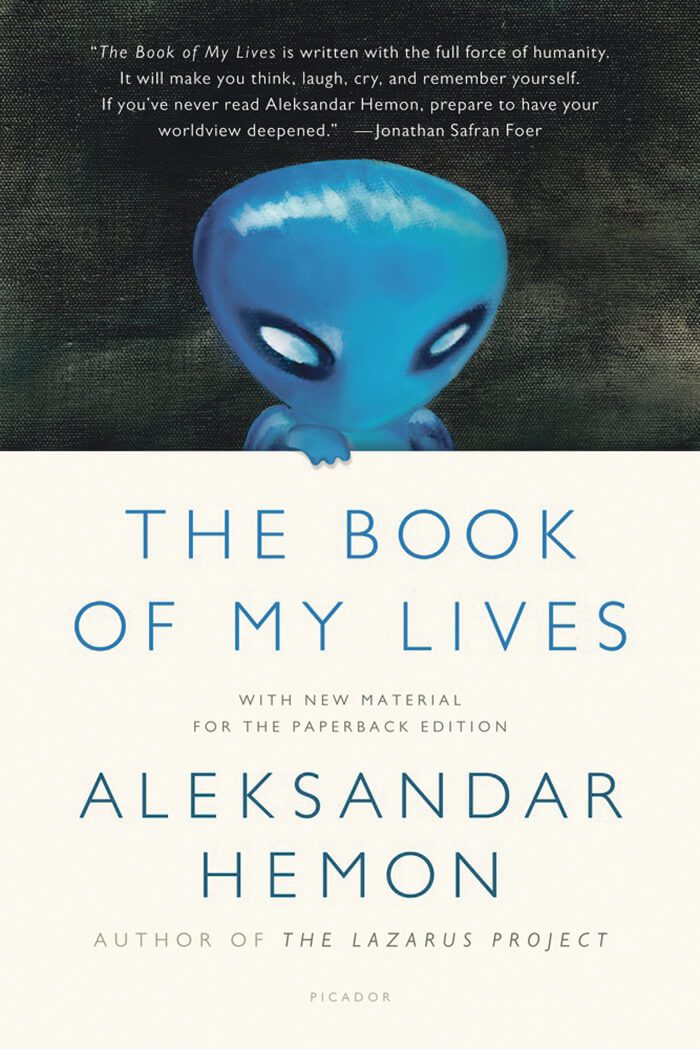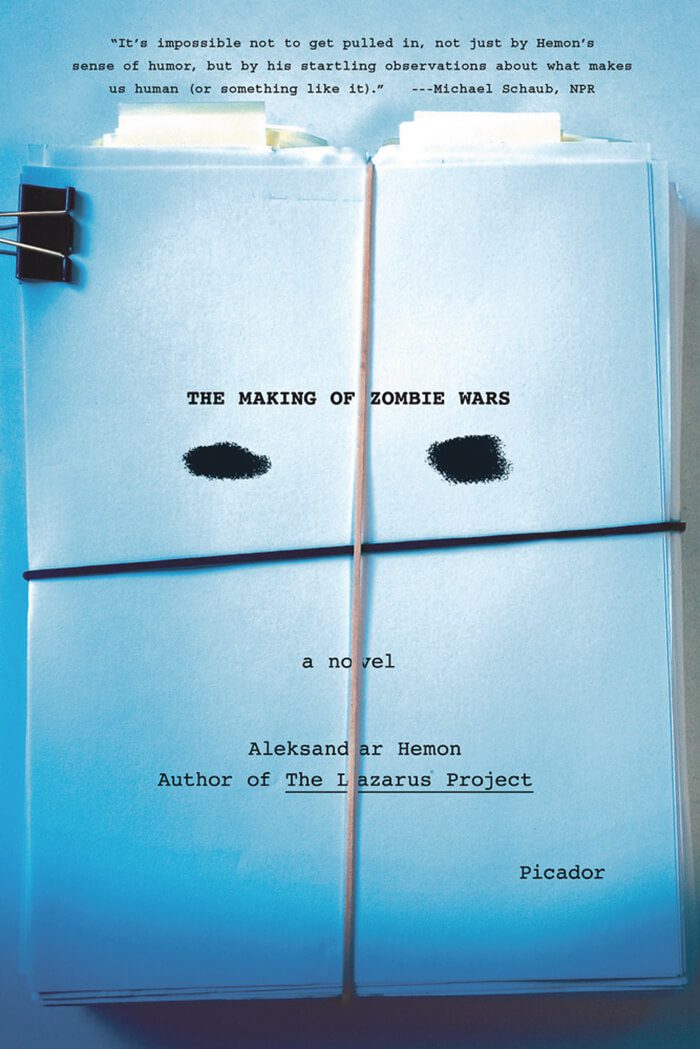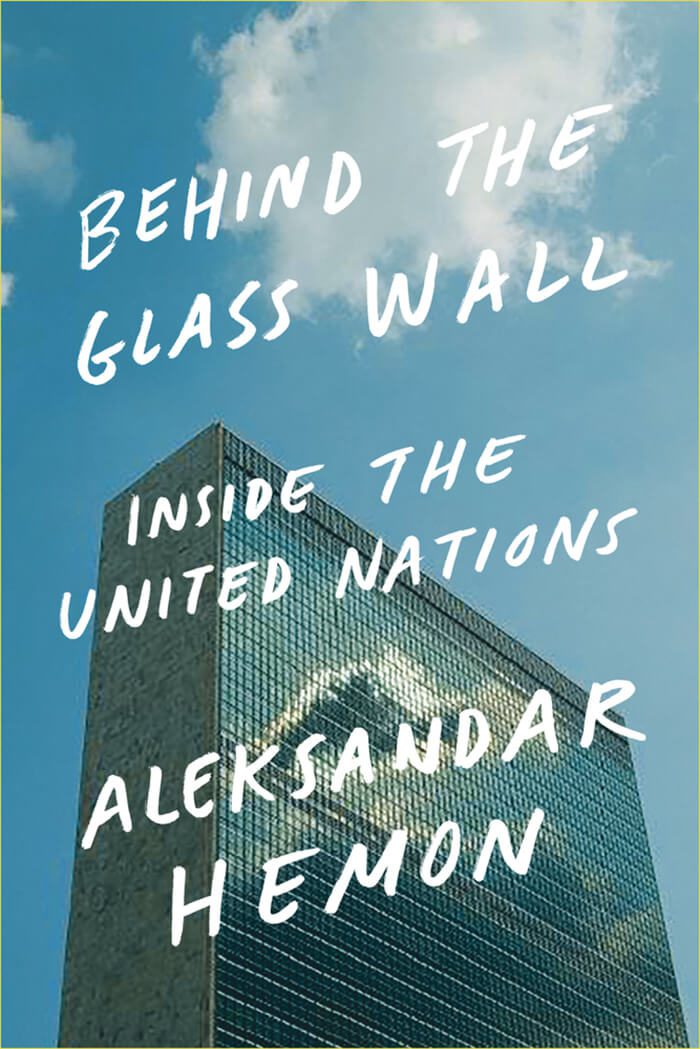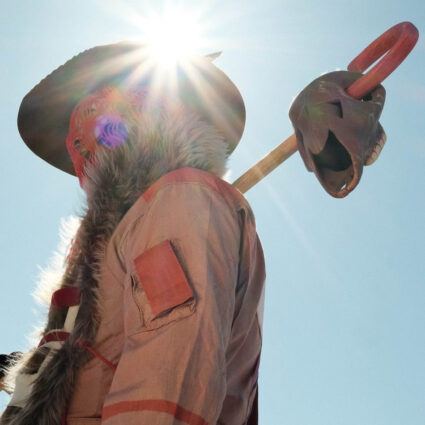
In the last year, Aleksandar Hemon’s writings in response to the 2016 U.S. presidential election and the perils of Trumpism (pieces like “Stop Making Sense, or How to Write in the Age of Trump” in the Village Voice, “Trump: A War Criminal in the Making” in Rolling Stone, and “The Urge to Violence in a Time of Trump” in LitHub) have served as my touchstones, pieces I bookmark and return to and share when I’m feeling especially low, especially unable to proceed. Hemon is a Chicago-based, Bosnian-American novelist, trenchant critic, soccer fan, and winner of the MacArthur and the Guggenheim fellowships. His writings about displacement, nationality, immigration, and identity have captivated me for years, since his first novel Nowhere Man (2002), which moves from Sarajevo to the Soviet Union to Chicago. His first collection of nonfiction, The Book of My Lives (2013), explores his multiple lives in Sarajevo and in Chicago, and the near loss of his daughter Isabel. He has published two other novels and two collections of short stories. His forthcoming book of nonfiction, Behind the Glass Wall, will be published in August 2018. In it, Hemon writes about his experience as the first writer in residence at the United Nations.
On February 28, 7 pm, Hemon will be in conversation with editor John Freeman for a Lannan Foundation reading and conversation at the Lensic Performing Arts Center. Freeman, a former editor at Granta and current editor of Freeman’s themed anthologies (I highly recommend Hemon’s essay “Uncle Julius” in Freeman’s: Family), is a longtime friend of Hemon’s. Their conversation is not to be missed. I reached out to Hemon in late 2017 with three questions about his recent writing and thinking.

1
You characterized the 2016 U.S. presidential election as a rupture in reality. “If the world and life are one,” you write, “if I am my world, as Wittgenstein suggested, then the rupture in the solidity of that world transforms who I am, regardless of my will and intention.” How do you mediate this rupture as a writer? How can fiction be useful in a moment of political dissolve?
Nabokov suggested that the word “reality” should only be used inside quotation marks. On a very basic level, people get used to that which is as the only possible way of being—everything is the way it is because it’s always been that way, and it’s always been that way because it can’t be any other way. One consequence of such reality inertia is that people have a very hard time imagining anything other than this, so the future is a mere, perhaps slightly more complicated, version of the present, therefore manageable. But trauma ruptures that continuity—that which is turns into that which is no more, whereby the parameters of a new “reality” are unknown and therefore barely comprehensible, if not outright unknowable. Moreover, if a rupture happened once, there is no reason to believe that it could not happen again, so that one is always on the lookout for the next one. This turns the world into a perpetually unstable place, where constant catastrophe looms. It’s a very frightening situation. People will therefore stick to what they used to know, even if it no longer applies, and will grasp for some kind of continuity. But that cannot undo the new conditions. The world changes before our eyes, but the frightening thing is that what is before our eyes is beyond the reach of our will and understanding. “How can that be?” people ask. What literature, and art, can do is both provide ways to imagine that which is not (yet) and also unpack, question, even destroy, the notion of “reality” as self-evident and as the only one possible. Literature explores and investigates how things can be.
Another way to think about the election of Trump is that the ruptured “reality” was merely a consensual fantasy wherein America is an exceptional nation that has transcendent, unique qualities, its everlasting good intentions inscribed in the Constitution. To this day, people are responding to Trumpism with “This is not us!” and “He’s not our president!” Of course it is! Of course he is! But to accept that would mean admitting that America was never that great to begin with. Unfortunately, nothing trumps (pun intended) America’s need to forget and erase in order to continue believing in its exceptionalism.
Within the American “reality” ruptured by a psychopath elected on a platform of hateful destruction, all the wars waged and crimes committed, all the racism and inequality, all the greed and sexism that have been around since the Founding Fathers raped their slaves, were really just honest mistakes on the nation’s trajectory to fulfill its manifest destiny. If only we could believe that again! Behold the nostalgia for Obama! Behold the passionate need for the Mueller investigation to provide national redemption and restoration. People keep believing that if a critical mass of provable and particularly egregious malfeasance on Trump’s part emerges, America will return to its good old self—decent, earnest, Obamaish, Founding-Fatherly—allowing a large number of (mainly white) people to believe again that it was just another honest mistake. With full and unconditional Republican support, Trump particularly brutally actualizes what has been present in America from its very beginning. There will be no repair until that fact is fully owned. What literature can be good for is not forgetting. America has been written down; we just have to read it. Bulgakov wrote: “Manuscripts don’t burn.”

2
You recently won a PEN/Jean Stein grant for Literary Oral History for a work in progress called How Did You Get Here?: Tales of Displacement. As a writer who has published autobiography and what some might call autofiction, what draws you to oral history and what inspired this project? How is this project informed by your other writing, or is this an entirely new direction for you?
Bosnians are scattered around the world. I have family in Canada, U.K., France, Sweden, Italy, Australia, and friends all over the world. On my writerly peregrinations, I would run into Bosnians all over the world—Tokyo, Oslo, Iowa City, you name it—and I’d always ask them: “How did you get here?” And they would tell me amazing stories. Any decent writer will admit to you that listening to other people—literally and metaphorically—is indispensable for telling stories. No one generates stories out of nothing, because no one generates language out of nothing. You have to listen to other people, and sometimes the other people is you. Nothing is a new direction for me, because I don’t have a direction. I operate in a multidimensional space, where I’m simultaneously present in many of its parts. You can call that field literature, or language, or my mind, but I never do just one thing, just like I never have just one thought.
3
You’ve written several important essays over the last year about the role of writers and writing under the present regime. I also follow you on Twitter, where you share your responses to current events as a Bosnian immigrant, including your fears about the administration’s control of the media and the need for substantial journalism. I’m thinking in particular about your comments on the Chicago Tribune and the New York Times. How can a reader approach the daily onslaught with criticality and awareness without being overwhelmed or subsumed? How do we continue to interpret and examine the world without a reliable news media?
For the longest time the belief that capitalism and democracy are the same thing, that the marketplace of ideas is just a version of the marketplace of commodities was not in any substantial way challenged in America. Somehow, ideas and commodities took care of each other, as it were, and the citizens/consumers freely shopped for the best stuff, and America happily continued on its manifest-destiny trajectory. Perhaps there was indeed a time when capitalism and democracy needed each other, but that is now all over. Trump is
but a tool of destruction applied to the (already weak) mechanisms of democracy on behalf of the capitalist elite. And the divide in this country is between those who value democracy over capitalism, and those who believe that making profit is the highest goal to any human thought and action.
I don’t think that the administration controls all the media, though they’d certainly love to. But I can understand their logic; it’s in the playbook of every authoritarian—to destroy democracy, you have to destroy public space. I have a harder time understanding the NYT (the Chicago Tribune is not worth even mentioning, as it has sunk to the level of the worst corporate-trash paper, essentially an advertising outlet for white suburbanites). The NYT has some great reporters, but it pretends that it is above ideology because it is a venue for the marketplace of ideas. And somehow, those ideas include white supremacy, or the aggressively neoliberal nonsense Friedman has spewed for a few shameful decades, and they all seem to be of equal value in the marketplace. The NYT cannot escape being a capitalist operation, so they effectively promote ideas that would destroy it, or, even worse, make it end up like the Chicago Tribune. The NYT treats news/ideas as commodities and sells them to all the consumers. And some consumers have more money: hence the incessant false-expertise analysis of “white working class” or slice-of-life articles about Nazis.
Another great falsehood is that the internet destroyed the American press. The Tribune was destroyed by its corporate owners (the most recent bright minds came up with the name trunc for their corporation), and the NYT lost a lot of public value and authority by enabling Bush and co. to invade Iraq, and never addressing their collaboration, as though it never happened.
I don’t know how to resist the onslaught of falsehoods, except the same way that people in oppressive regimes resist propaganda: preserving some autonomous mind space; connecting with people beyond the venues provided by the power; understanding what the power wants; seeing that “reality” is a creation; using your imagination to undo it, mock it, destroy it; thinking, listening to people, writing; taking part in various forms of resistance; never being passive, as passivity is what the power wants from you.
It is not for me to assign roles to writers, but I do believe that every writer must have an ethics, because they must have an aesthetics. I have a lot of opinions on the relation between ethics and aesthetics, but what guides me in a time like this is the thought that some future day someone (say, my daughters) will ask me: “So what did you write when Bush/Trump was President? or “What did you do when America went to war in Iraq/against its own people?” Our children will ask us, and I don’t want to be ashamed of my answer.




